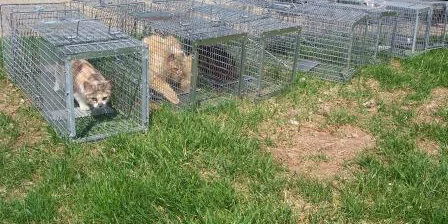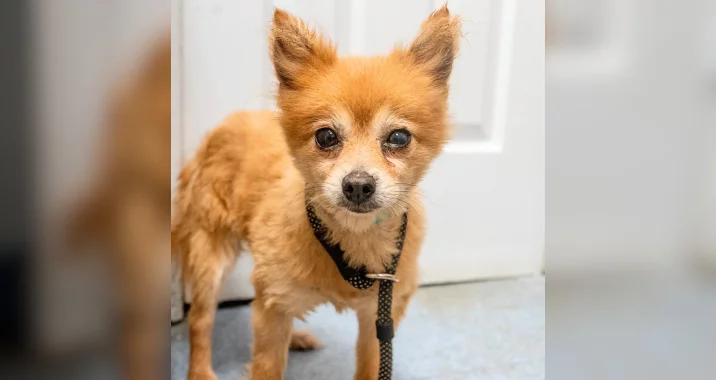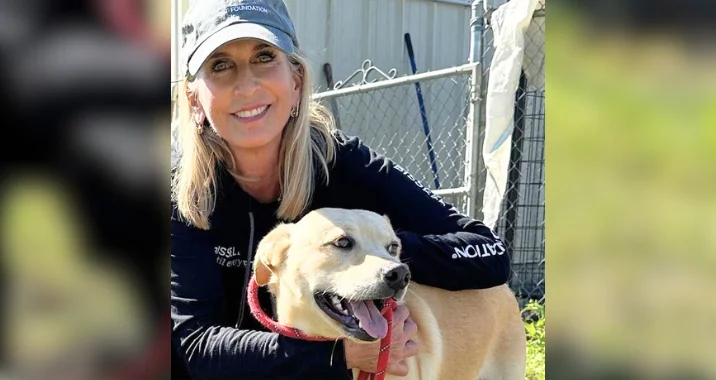TNR - Helping Cats and Their Caregivers
Spay/neuter initiatives are one of the most important means of addressing the devastating pet overpopulation problem. Recently, the BISSELL Pet Foundation awarded a $10,000 grant to the Lansing, MI based Capital Area Humane Society’s Trap-Neuter-Release (TNR) program. As a result, 125 cats and counting have been spayed or neutered in just 6 months. This funding not only impacted area cats, but also the people who cared for them. The Capital Area Humane Society shared the following incredible story of a woman, Margaret, who spent 15 years struggling to care for cats in her community until she found support through the BISSELL Pet Foundation TNR grant.
The Capital Area Humane Society writes:
We had gotten in touch with Margret through one of her daughters-in-law, who had called our entry department asking us to take what she described as “around 30 cats”. When a call like that comes in, we go out to the home to assess the situation as soon as possible. The sooner that we can intervene in a situation that is out of control and only getting worse, the easier it is for both us and the cat parent. So we travel out to see if the cats are adoptable, and if they are fixed. In this case, they were neither.
I was surprised when we drove up to the house that I didn’t see any cats in the front or from the road. Then one peeked it’s head around the corner of the house, and then another. A sign on the garage asked us to go to the back door, and as we rounded the corner, we found the cats! Grays, dilute torties, and orange cats scattered as we approached, each finding what they decided was a safe distance and position to watch us come. I crouched down and called, waited a few moments, and no one came to me. They were all pretty wild.
Margaret is exactly what you would imagine when I tell you that she is an 83-year old country grandmother. She had on slacks and a floral shirt, and her home had floral wall paper and felt warm and inviting. We sat down at the kitchen table to talk, and she offered us tea. She smiled when she talked, although when we started discussing the cats she immediately seemed more tired.
She explained sheepishly that she didn’t have the constitution to let anything starve, but that things had definitely gotten out of hand. She was embarrassed by the situation and did everything she could to keep the cats living behind the house and in the barns, not visible from the road. Her husband had made homes for them to sleep in one of the barns before he passed away. She said that each winter some would wander away and not return, but then every spring there would be kittens and kittens and kittens. She had called a local vet, but was quoted $150 per cat to fix them, which she said she would never have been able to afford. And so the cycle continued. She said that she had been feeding the cats for around 15 years.
I explained that we wanted to get the cats fixed and vaccinated for her. I told her about the ear-tip that we give outside cats, which keeps them safe from Animal Control, and she agreed immediately. Since we had first found out about her through our intake program, I tried to gently let her know that these cats wouldn’t be good candidates for adoption, and asked if she would be interested in keeping them, as long as they were “fixed”. She agreed immediately. I asked how many she thought that there were, and she predicted 20. We headed outside to set traps.
Margret doesn’t get around very well, so she feeds them right out the back door. We set 12 traps the first night, most in that area and some by the barns where they sleep. Sadly, we did find an orange kitten that had died over the winter behind a trellis, and moved his body to the back of the property.
The cats looked rough. A few had lost the tips of their ears to frostbite, and others had crinkled ears due to ear mites. I really like getting involved with colonies like this, because altering the cats tends to vastly improve their quality of life – once the females aren’t putting resources into birthing kittens twice a year, they become much healthier.
We caught 14 hungry cats the first night; two of the traps had two cats in them. The torties were clearly identifiable as females, but we had a number of cats where the sex would be unknown until we got them out for surgery. The first day we fixed nine females, four of them in early pregnancy, and five males. The second night we caught five more, three males and two females, for a total of 19 cats. She didn’t have names for most of them, so when they came in for surgery we gave them description names. Lanky Orange was a male. Beautiful White was a female.
The cat that I felt the best about was one we called Torti-One-Eye. Her left eye had clearly been damaged by something and was infected. When we put her out for surgery, we cleaned out her wound and applied triple-antibiotic to the eye, and provided a two-week antibiotic shot. We make a measurable impact on all of the lives of the cats that we fix, but I can’t help feeling like her quality of life is much better because we were a part of it.
We had Margret watch outside the day after trapping to see if any more cats came to eat. We were thrilled when she called and reported that none had; we had caught all of the cats in her colony! After keeping them for two nights to let them begin the healing process, they were returned home to a happy Margret. She asked us to pass on her thanks to the BISSELL Pet Foundation, with tears in her eyes. Thank you so much for touching all of these lives, feline and human!
About the BISSELL Pet Foundation
 The BISSELL Pet Foundation is a charitable 501(c)(3) non-profit organization with a mission to help reduce the number of animals in shelters and to support organizations dedicated to the humane care and treated of animals through pet adoption, spay/neuter programs, microchipping and foster care. Founded in 2011 by Cathy Bissell, the BISSELL Pet Foundation is an extension of her long-standing love for animals and commitment to their welfare. The foundation is supported to BISSELL Homecare, Inc., a 138-year-old Grand Rapids-based floor care appliance brand in its fourth generation of family leadership
The BISSELL Pet Foundation is a charitable 501(c)(3) non-profit organization with a mission to help reduce the number of animals in shelters and to support organizations dedicated to the humane care and treated of animals through pet adoption, spay/neuter programs, microchipping and foster care. Founded in 2011 by Cathy Bissell, the BISSELL Pet Foundation is an extension of her long-standing love for animals and commitment to their welfare. The foundation is supported to BISSELL Homecare, Inc., a 138-year-old Grand Rapids-based floor care appliance brand in its fourth generation of family leadership



